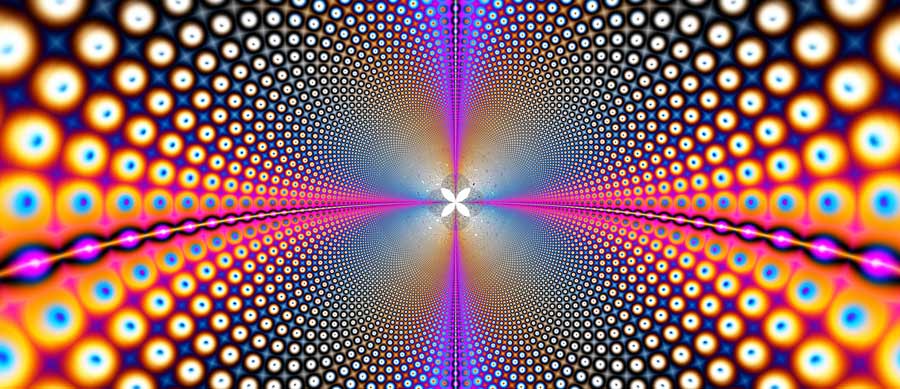Table of contents
Chances are, you’ve probably already heard of LSD and acid. But how much do you really know about this drug and what’s the difference between the two terms? In this article, we’ll take a closer look at LSD and acid to help you determine the risks of using it, what kind of side effects are common, and what you can do if you need help getting sober.
| LSD vs. Acid: What’s the Difference? LSD and acid are exactly the same drug. However, some people refer to LSD as acid because it’s a street name or slang term for the drug. Other street names for LSD include dots, mellow yellow, and window pane. |
What is LSD?
Lysergic acid diethylamide or LSD is a psychedelic drug that is colorless and odorless. It’s a synthetic substance that is not found anywhere in nature and was first discovered in 1938 by Albert Hofmann, who was a Swiss chemist.1
People take LSD orally, sometimes consuming it as droplets or by putting a piece of blotter paper on their tongue and then swallowing it. Hofmann first experienced the psychoactive effects of LSD after accidentally ingesting a small amount. Following this experience, he documented its effects and sent samples out to other scientists, psychiatrists, and mental health professionals for further study.
Much of the early research on LSD concluded that LSD may have potential mental health benefits and medical uses, but the studies do not adhere to today’s standards. Regardless, researchers are revisiting the potential benefits of using LSD to treat issues like anxiety, cluster headaches, addiction to other drugs and alcohol, and depression.
Today, LSD is the most well-known and researched psychedelic drug. It’s classified as a Schedule I substance in the U.S. because it has a high potential for abuse and no currently accepted medical use. However, recent studies have shown lower rates of mental health disorders and suicide among people who have used psychedelics like LSD.2
How long does LSD or acid stay in your system?
LSD can be detected in the body for several weeks, depending on factors like:
- The type of drug test used
- How much LSD the person took before being tested
- Individual factors like age, weight, organ function, and overall health
Although most standard drug tests don’t test for LSD, it can be detected using urine, blood, and hair samples. The approximate testing times for these are as follows:
- Urine test: LSD can be detected for up to 2 to 4 days after the last use.3
- Blood test: LSD can be detected for up to 6 to 12 hours after the last use.3
- Hair test: LSD can be detected for up to 90 days after the last use.4
What are the side effects of LSD or acid abuse?
LSD can produce significant physical and psychological side effects at very small doses (about 20 micrograms). Although it can affect people differently, LSD may produce some of the following side effects:5
- Euphoria
- Altered perceptions
- Increased blood pressure
- Increased body temperature
- Confusion
- Intense visual hallucinations
- Out of body experiences
- Rapid mood swings
What are LSD or acid withdrawal symptoms?
LSD does not typically produce any physical withdrawal symptoms. However, some people may experience varying levels of discomfort after they stop using LSD regularly. For example, depending on the person, they may experience one or more of the following symptoms:
- Insomnia
- Irritability
- Anxiety
- Restlessness
- Depression
Additionally, individuals who abuse LSD may be more likely than others to misuse other drugs as well. Some of these substances may be addictive and may produce uncomfortable withdrawal symptoms that require professional detox treatment.
If you’re experiencing uncomfortable withdrawal symptoms after you stop using LSD or other addictive drugs, personalized detox in Austin can help you cope and get through it without relapsing.
| Compare Other Drugs Adderall vs. Ritalin Adderall vs. Vyvanse Xanax vs. Valium Valium vs. Ativan Valium vs. Klonopin Meth vs. Adderall Lyrica vs. Gabapentin CBD vs. THC |
Is LSD or acid addictive?
LSD is not considered an addictive drug and it’s not known to cause compulsive use.5 In fact, the human body quickly develops a tolerance to LSD so, after a few days of using it, you would have to take very large doses to achieve the desired effects. Additionally, for some people, the side effects of LSD are very intense and long-lasting. As a result, they may limit how frequently they use it to avoid unpredictable effects. Regardless, using LSD can be dangerous due to its psychological effects.
Get Drug Detox in Austin TX or Houston TX
Although LSD is not an addictive drug, the side effects of chronic abuse can cause harmful side effects, psychological problems, and issues with relationships, productivity at work and school, and even financial problems. If you are struggling with chronic drug abuse, detox in Austin TX can help you get sober.
When you’re ready, the detox professionals at Briarwood Detox Center can help you by providing an individualized treatment plan based on your treatment history, the severity of your addiction, and your overall health and well-being. As a result, you’ll have a stable foundation for long-lasting sobriety and recommendations for ongoing care. Whether you choose to continue treatment after detox with an Austin drug rehab or outpatient rehab Austin, our caring professionals will be there to support you along the way.
If you’re struggling with drug addiction, you’re not alone. There’s always hope for lasting recovery and the staff at Briarwood Detox Center can help you achieve it. Please call (512) 262-4426 or contact us online to start your journey to recovery today. We accept most forms of insurance.
References:
- https://www.dea.gov/sites/default/files/2020-06/LSD-2020.pdf
- https://maps.org/research-archive/w3pb/2008/2008_Passie_23067_1.pdf
- https://methoide.fcm.arizona.edu/infocenter/index.cfm?stid=240
- https://drugpolicy.org/sites/default/files/LSD_Facts_Sheet.pdf


